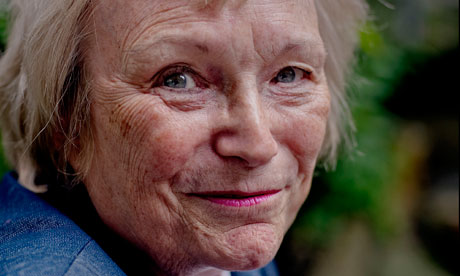David Cameron‘s “big society” emphasis on charities and philanthropy to compensate for public sector cuts will exacerbate the north-south divide, according to one of the UK’s leading thinktanks.
A report from the Institute for Public Policy Research North suggests the government’s hopes that the voluntary, business and philanthropic sectors will help transform society at a time of budget cuts across the public sector are misplaced.
Depending on philanthropic donations to help achieve this goal will backfire because donations are unevenly distributed in favour of London, the IPPR warns. It found that 40 donations of more than £1m were made in London in 2009, compared with six in the north-east of England, eight in the Midlands and nine in Scotland. “Clearly, the gap between London and the rest of the UK is enormous,” the IPPR says.
The rise of the modern philanthropist has been exemplified by Dame Vivien Duffield, who has given more than £200m to good causes, notably an £8.3m donation last month to a number of British arts organisations including Tate Britain, the National Theatre and the Royal Shakespeare Company.
The IPPR also claims that relying on the private sector to provide the resources to bring about the “big society” will put areas such as London – where many of the largest businesses have their headquarters – at a huge advantage. The south also benefits because it is home to the largest charities and voluntary organisations, which are better equipped to compete for public sector contracts. Conversely, the north suffers because it is home to more voluntary and community organisations that are reliant on public funding.
As a result, the IPPR warns public spending cuts could “doubly disadvantage” the north and claims 62% of voluntary and charitable organisations in the north-east have already seen a decrease in funding.
“Our research shows that the big society is not currently a fair society and goodwill is beginning to wear thin as the voluntary and community sector try to deal with budget cuts,” said Ed Cox, director of IPPR North. “We need to target what little money there is to organisations that struggle to find it elsewhere. Less attractive organisations that lack donor appeal or those operating in areas where business or corporate gifts are hard to come by should be the priority.”
Earlier this year a senior figure in the voluntary sector said the cuts were “destroying” volunteering and undermining the big society vision. Dame Elisabeth Hoodless said before she stepped down as head of Community Service Volunteers that there was no strategic plan.
The government has responded by insisting it wants fairness to be at the heart of policymaking and has introduced a series of grants and policies to get the big society up and running. Community organisers are being trained and a Big Society Bank will invest cash from dormant accounts in social ventures. There will also be a £100m fund for charities affected by local government cuts.
But the report questions whether the initiatives will benefit all regions equally and warns that “stark inequalities exist in how the time, capacity and skills required to engage with the big society are currently distributed. A key component of fairness is that there is a level playing field, so that individuals and groups have an equal opportunity to engage.”
The IPPR points out that only 10% of the 5,000 new community organisers in England will receive a bursary, and then only for a year. It also questions whether by focusing on geographically defined neighbourhoods minority interests would be marginalised.
To address these concerns the thinktank suggests that the Big Society Bank should make funds accessible to small as well as large organisations.
It also calls for “seed-corn” grants to help voluntary and community organisations become more enterprising and for a “strongly branded local community fund” to be established in priority areas, backed by government pledges to match a proportion of business donations.
http://www.guardian.co.uk/society/2011/apr/23/charities-north-south-divide-london







